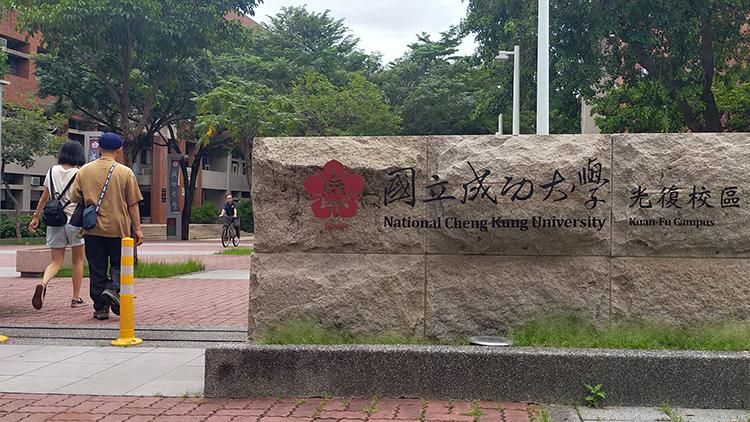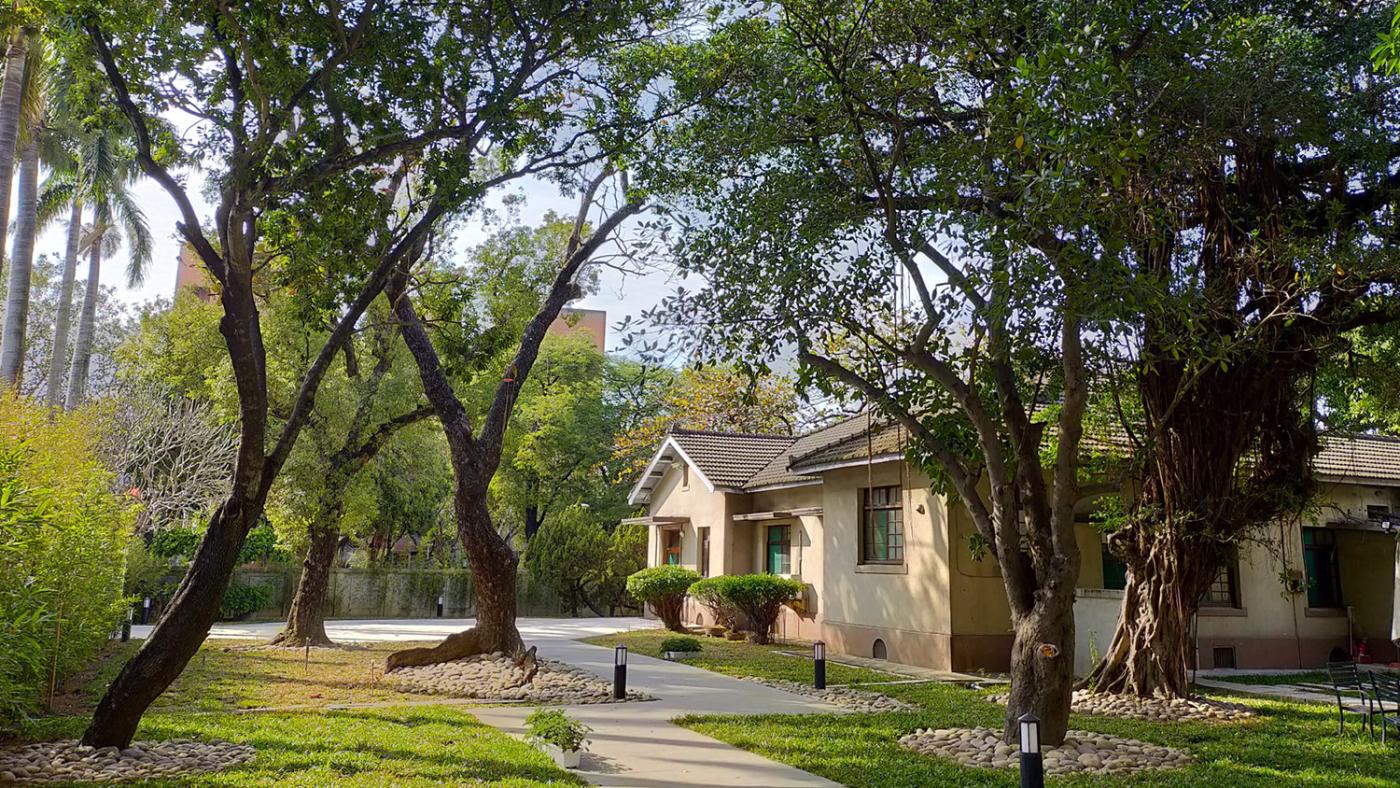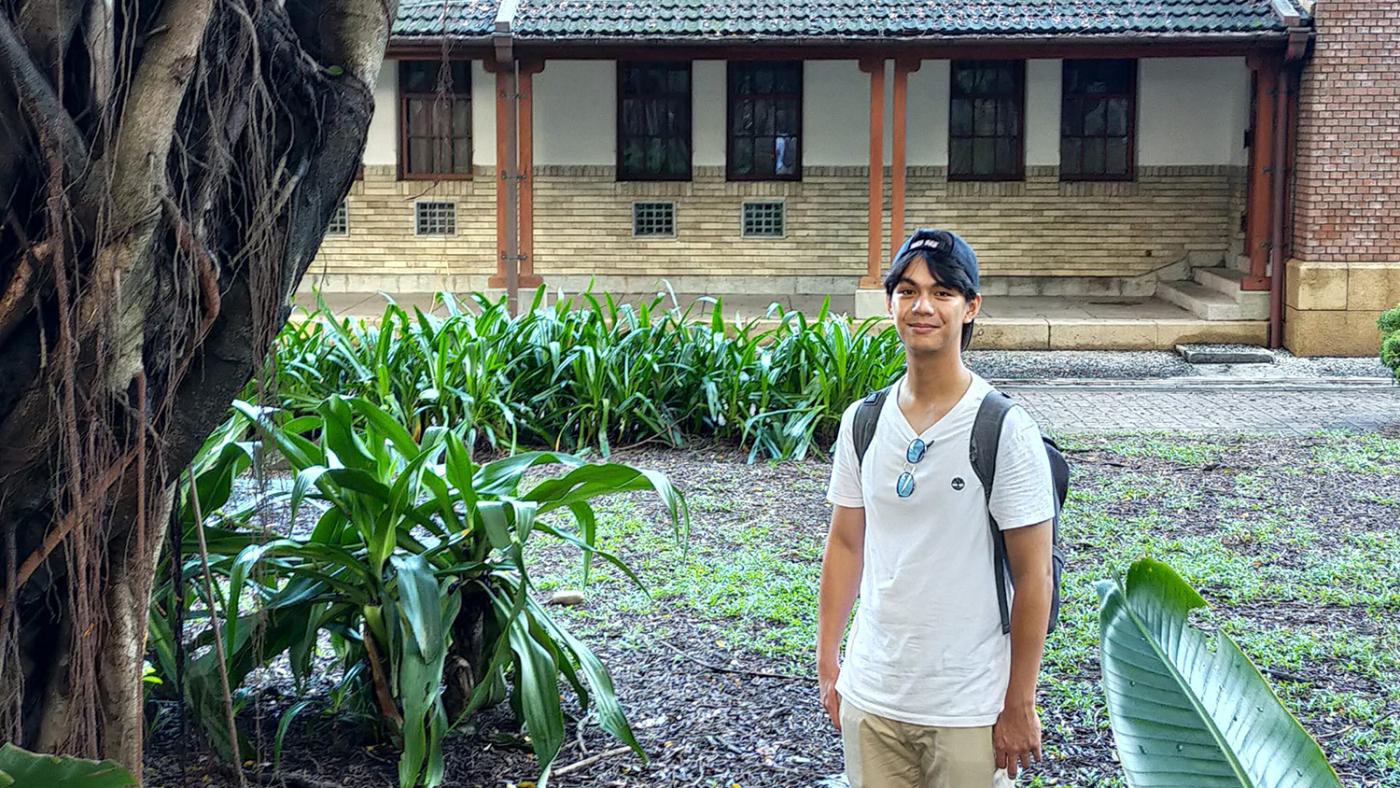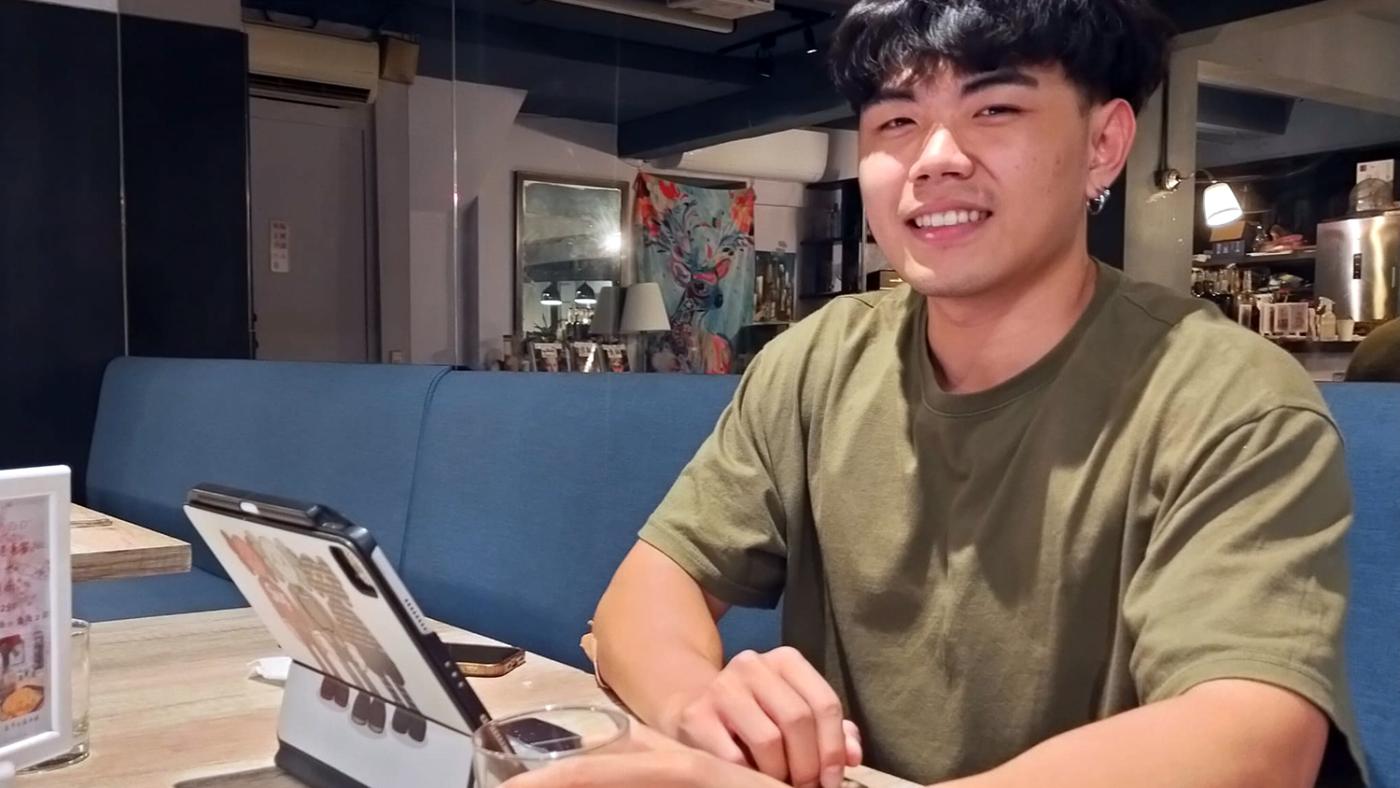Students under threat
Taiwanese students display nonchalant attitude about conflict with China

I'm in the garden of the ChengKung University campus, in Taiwan, as three Taiwanese fighter jets fly over our heads. Students like to come here for a picnic or pose for a cap-and-gown picture under the Banyan trees but today, due to summer break, the garden is practically empty. Despite the heat, two students are chatting by the entrance of one of the university's buildings — stately Japanese buildings that served as military barracks last century. I approach them and ask what they think of the noise caused by the military exercises. The answer is a shrug. "They've been flying for years, so we're used to the noise." The students don't seem all that worried about the possibility of an invasion, despite the fact that Chinese warplanes have been flying over Taiwanese airspace more and more, and Taiwan is reacting by increasing the frequency of military exercises.
The students' calm demeanour contrasts with the way the West has been reporting about the tensions between China and Taiwan. Last year, when I left the Netherlands to finish my Master's thesis and study Mandarin, my family and friends were concerned about how safe the country would be, to the point that I almost started getting second thoughts myself. But once I landed in Taiwan, I learned that the locals find the Western coverage of the issue exaggerated and overly pessimistic: they told me that China's threats are nothing but threats. I've since graduated with my UU Master's and I feel safe enough to stay here a few more months, but I wonder how safe Taiwanese students really feel and how the issue will influence their future.

Taiwan NCKU, the campus with Banyanbomen
Prosecuted by China
Research by the Taiwanese Central News Bureau shows that 75 percent of young adults in Taiwan admit the possibility of a war breaking out between Taiwan and China. Nevertheless, the students I talked to view it as a future problem. "I used to get nervous about it but not anymore," MinYuan, a Master's student in Sports Education, tells me. "People say all the time that China is going to attack us but so far it's never happened." Her classmate LiZi, who's following the same Master's programme, agrees: "I'm not very invested in it these days. It's much more important to find a good job and earn enough money to support myself and perhaps buy a house. A lack of jobs and high real estate prices are the most pressing problems for us."
Luke is the chair of the local student union. Like many young Taiwanese people, he prefers to introduce himself with his chosen English name. According to him, most students are not preoccupied with the threats. "There's been a threat for years, so our concern gradually diminished. Besides, there isn't much we could do anyway in the event of an invasion." The same passive attitude emerges in conversations with several other students, who say they can't do much to change the situation, which is why they prefer to focus on their studies and the problems that directly impact their lives right now.
But one would be mistaken to assume that all students behave like that, observes LaiShao, a Bachelor's student in Electrical Engineering, as he shares his future plans with me at a Japanese bar. Although he doesn't believe that China will invade Taiwan anytime soon, he's planning on studying in Europe or North America because of the impending war. "There is no guarantee of a safe future here. If I want to have kids or get rich, emigrating is the way to go." In addition, he's really interested in other cultures and the "relaxed" work culture he perceives Westerners to have, which is why he'd like to learn English and Spanish. His parents totally support him. "My mom moved from China to Taiwan about twenty years ago, so there is a chance she'll be prosecuted by China if a war breaks out."
According to LaiShao, about twenty percent of his friends have similar plans. Luke, the chair of the student union, confirms that many students are moving to Europe and the USA to continue their studies there, some of them with the additional goal of escaping the political situation in Taiwan. As to be expected, China is not a very popular destination. "Although Taiwanese students can easily be admitted to Chinese universities, most of them do not want to study there. The West is just a lot more attractive, culturally speaking. After all, the students of our generation grew up watching American television and listening to American music."
Due to the astronomical tuition fees practised by American universities and the lack of affordable English teachers in Taiwan, moving to the US is a privilege for the upper middle class. In the south of the country, such as in Tainan, young people's command of the English language is lower because they tend to be more traditional and less exposed to Western culture. That's why they are more inclined to say that they would stay in Taiwan, even at war.

Luke, chair of the student union
Semiconductors as a trump card
But the tensions between Taiwan and China don't only affect students' future plans. Their present is very much affected by national politics, especially by education policy. For example, the party currently in power, the Democratic Progressive Party (DPP) is adamant about turning Taiwan into a bilingual country by investing heavily in English-taught education — a choice that not only envisions economic prosperity but also aims to strengthen Taiwan's ties with the international community, thus making the country more resilient against China.
Although the students I talked to were unanimously in favour of this policy, there are worries similar to some voiced in the Netherlands, namely that English-taught programmes cannot guarantee the same level of quality. "English is indispensable nowadays but teachers' levels are very low and we also lack native speakers to teach us," explains LaiShao. Hence their dependence on expensive private classes, which in turn fuels inequality.
Another policy that directly affects students is the recent decision to extend military service for men from four months to a year. LaiShao is planning on starting his next summer. He tells me he actually welcomes the initiative. "Although Taiwan would never stand a chance if a war were to break out, this may help hold off a possible attack, especially if China would lose too many soldiers in such an invasion," he ponders. Other students, such as LiZi, don't see the point of it: "China's population is almost five times as big as ours and their army is much stronger. Besides, one doesn't do much in military service: you're just sweeping floors and daydreaming."
All the students I've talked to believe that the Taiwanese economy offers better protection against China. Taiwan produces a large part of the world's electrical semiconductors. The semiconductor company TSMC constitutes an important trump card for them, according to Electrical Engineering student YuSheng. "Investing in weapons is necessary but I think that developing and protecting the semiconductor industry is even more essential as it enables Taiwan to improve its relationships with other countries and maintain its economic autonomy."

YuSheng, a Master's student in Electrical Engineering
Democracy as an identity
The tensions between China and Taiwan may seem abstract on an economic level but much more visible in personal terms: many of the students I've talked to identify themselves as Taiwanese even though their ancestors came from China. That is not exactly surprising considering that American influences permeate Taiwanese culture despite the fact that they've maintained the Chinese language, holidays and religion. There are also Japanese elements to their culture, reminiscent of the first half of the twentieth century when the island was a Japanese colony. "The mix of different cultures in Taiwan makes the country innovative and unique, which is exactly what we need to resist China," argues YuSheng. He and other students told me that the Taiwanese culture and identity are formed not only by this potpourri of influences but also by democratic values and an open society that enables this interaction.
The way students value the national elections demonstrates the extent to which democracy and freedom are key to the Taiwanese identity. Like in previous years, the tone of the upcoming elections (set to take place in January) is set by the following question: what kind of relationship is the island going to have with China? All parties must answer that one question. The Taiwanese prize the elections so much that many of those living in Europe and North America fly back to the island just to vote. LaiShao explains that the popular vote doesn't only serve to choose which party will hold the power. "It's the moment when we come together as a country, strengthening our bond even more — even if we don't all vote for the same candidate."
As the sun slowly sets, one last fighter jet flies over the campus. The students have left and the elderly practising tai chi under the Banyan trees don't seem to mind the noise. I've learned that the conflict does influence students' lives here, despite their sometimes passive and nonchalant attitude towards the political situation. On top of that, they also struggle with the same questions students in the Netherlands do, such as the pressure to get good grades, making ends meet, getting a suitable job, and finding affordable housing. It's hard not to feel compassion and respect for them. Even though the Taiwanese have become accustomed to the constant threat and the ominous noise of the fighter jets, I hope that future generations will no longer have to.

Marcel Hobma, the UU graduate studying in Taiwan.